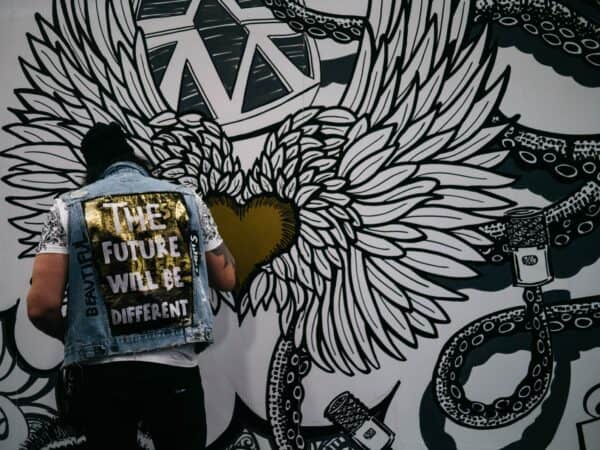One of the most important things we can do for ourselves as changemakers is to become intentionally core aligned. It is so important that it forms an essential pillar of the Wish Tree self-leadership model.
When we are core aligned we feel rooted like a tree and means that we remain grounded when the going gets tough.
We know what we are all about and crucially, we act on it. Being core aligened means we share our true colours.
No longer hiding parts of ourselves is not always comfortable – in fact it can be deeply uncomfortable – but it always feels true, and less exhausting in the long-run.
It means we don’t betray ourselves or what we know is right by others or the planet.
It means we can operate with integrity, walk our talk and live with fewer regrets.
And it means that even though we may change direction in our lives, what we essentially stand for remains the same.
Being core aligned requires us to look within.
And this may sometimes feel unfamiliar in a world that wants us to look outside of ourselves for answers and ‘solutions’ to the confusions that it gave rise to in the first place.
That means that the first step is to create time and space in our lives to focus.
So is saying yes to being in community with others who also want to live, serve and lead with greater core alignment.
To be core aligned is to operate from the core of our being. This is where everything that matters to us and what we believe in lives.
We can describe what matters to us and what we believe in by defining our values. In order to be core aligned we take action to embody them.
This enables us to live more authentically.
Living our values in action is not comfortable.
It will require us to stand up for what we believe in. Set boundaries. We intentionally will stop doing some things, start doing other things or do more of what we already do.
Being core aligned empowers us to choose courage over comfort, and walk our talk.
It enables us to show up with integrity, not betray ourselves or what we know is right by others and the planet.
Do you know what your core values are? Where can you feel them in your body?
What does living your values in action look and feel like? Where do you choose comfort over courage?
If you want to feel more connected to, aligned with and embodied in your core, then let’s connect in a call.








